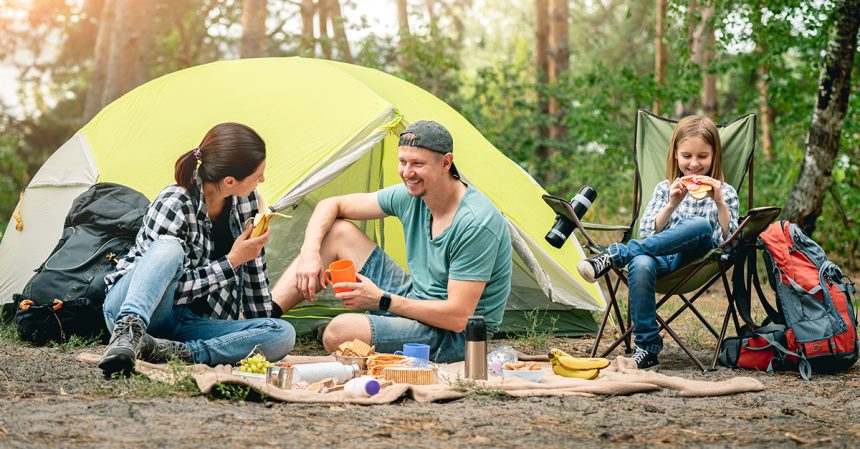Camping is a timeless adventure that allows us to reconnect with nature, unwind from the hustle and bustle of daily life, and create lasting memories with loved ones. However, a successful camping trip requires careful planning and preparation to ensure a safe and enjoyable experience. From avoiding encounters with wildlife to minimizing environmental impact, there are many factors to consider before embarking on your outdoor adventure.
We’ll explore 18 foolproof tips to help you navigate the ins and outs of camping like a seasoned pro. Whether you’re a novice camper or a seasoned outdoors enthusiast, these tips will equip you with the knowledge and skills necessary to make the most out of your camping experience.
Research the area
Before heading out into the wilderness, take the time to research the camping area thoroughly. Familiarize yourself with local wildlife, terrain, and weather conditions to better prepare for any potential challenges or hazards you may encounter during your trip.
Check for permits and regulations
Many camping areas require permits or have specific regulations in place to protect the environment and ensure visitor safety. Before setting up camp, be sure to check for any permits or regulations that may apply to your chosen destination and comply with them accordingly.
Choose the right campsite
When selecting a campsite, consider factors such as terrain, proximity to water sources, and level of privacy. Look for a flat, dry area away from potential hazards such as dead trees, steep cliffs, or areas prone to flooding.
Set up camp responsibly
Once you’ve chosen a campsite, take care to set up your camp responsibly. Use existing fire rings and avoid damaging vegetation or disturbing wildlife. Practice Leave No Trace principles by packing out all trash and minimizing your impact on the environment.
Be prepared for wildlife encounters
While camping, it’s essential to be aware of the wildlife that inhabits the area and take precautions to avoid encounters. Store food securely in bear-proof containers or bear bags, and keep a safe distance from wild animals if you encounter them.
Protect yourself from insect bites
Insect bites can put a damper on your camping experience, so be sure to protect yourself by wearing long sleeves, pants, and insect repellent. Consider treating your clothing with permethrin for added protection against ticks and mosquitoes.
Stay hydrated
Staying hydrated is crucial when spending time outdoors, especially in hot or humid conditions. Bring an ample supply of water or a portable water filtration system to ensure access to clean drinking water throughout your trip.
Pack appropriate clothing
Pack clothing suitable for the expected weather conditions, including layers for warmth, rain gear for wet weather, and sturdy footwear for hiking. Be prepared for temperature fluctuations and dress accordingly to stay comfortable throughout your camping trip.
Bring a first aid kit
A well-stocked first aid kit is essential for addressing minor injuries and illnesses while camping. Be sure to include items such as adhesive bandages, antiseptic wipes, pain relievers, and any personal medications you may need.
Practice fire safety
If you plan to build a campfire, take precautions to prevent wildfires and ensure your safety. Use designated fire rings or pits when available, keep fires small and manageable, and never leave them unattended. Always fully extinguish fires before leaving your campsite or going to bed.
Pack a reliable light source
A reliable light source such as a headlamp or flashlight is essential for navigating your campsite at night and performing tasks after dark. Be sure to pack extra batteries or a portable charger to keep your light source powered throughout your trip.
Plan for meals
Plan your meals in advance and pack non-perishable foods that are easy to prepare and require minimal cooking. Consider bringing a portable stove or grill for cooking hot meals and storing perishable items in a cooler with plenty of ice or ice packs to keep them fresh.
Practice proper waste disposal
Dispose of trash responsibly by packing it out with you if there are no on-site garbage facilities available. Separate recyclables from non-recyclables and follow Leave No Trace principles to minimize your impact on the environment.
Stay entertained
While camping offers plenty of opportunities for outdoor recreation, it’s also essential to have activities to keep you entertained during downtime. Bring along books, games, or musical instruments to enjoy with friends and family around the campfire.
Respect other campers
Be considerate of other campers and respect their privacy and space. Keep noise levels to a minimum, especially during quiet hours, and avoid shining lights or playing loud music late at night.
Be mindful of wildlife
Avoid attracting wildlife to your campsite by properly storing food, trash, and scented items such as toiletries and sunscreen. Keep a clean campsite and never feed wild animals, as this can habituate them to human food and lead to potentially dangerous encounters.
Practice Leave No Trace principles
Follow Leave No Trace principles to minimize your impact on the environment and preserve the natural beauty of the areas you visit. Pack out all trash, minimize campfire impacts, and leave natural and cultural resources as you found them for future generations to enjoy.
Have a backup plan
Despite careful planning, unforeseen circumstances can arise during camping trips. Have a backup plan in place for emergencies such as inclement weather, injuries, or vehicle breakdowns, and be prepared to adapt your itinerary as needed to ensure a safe and enjoyable experience.










